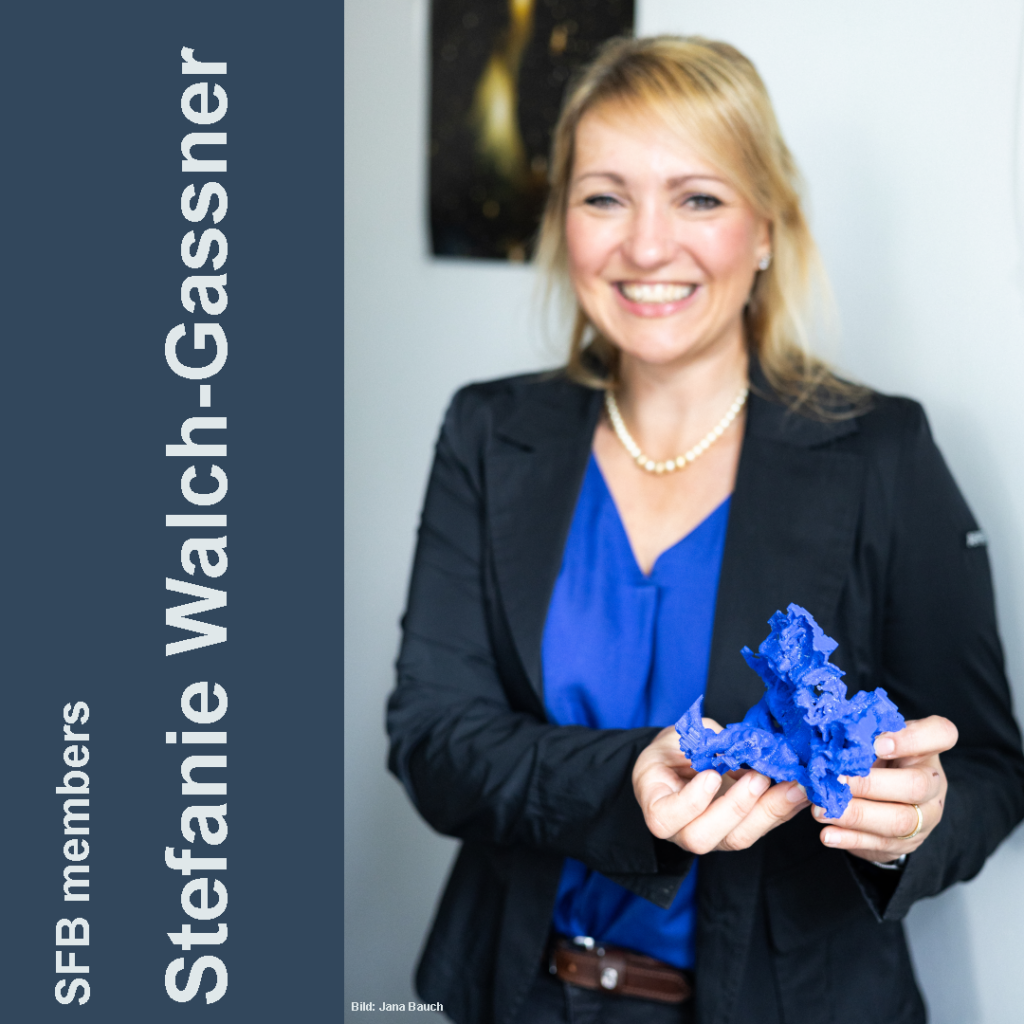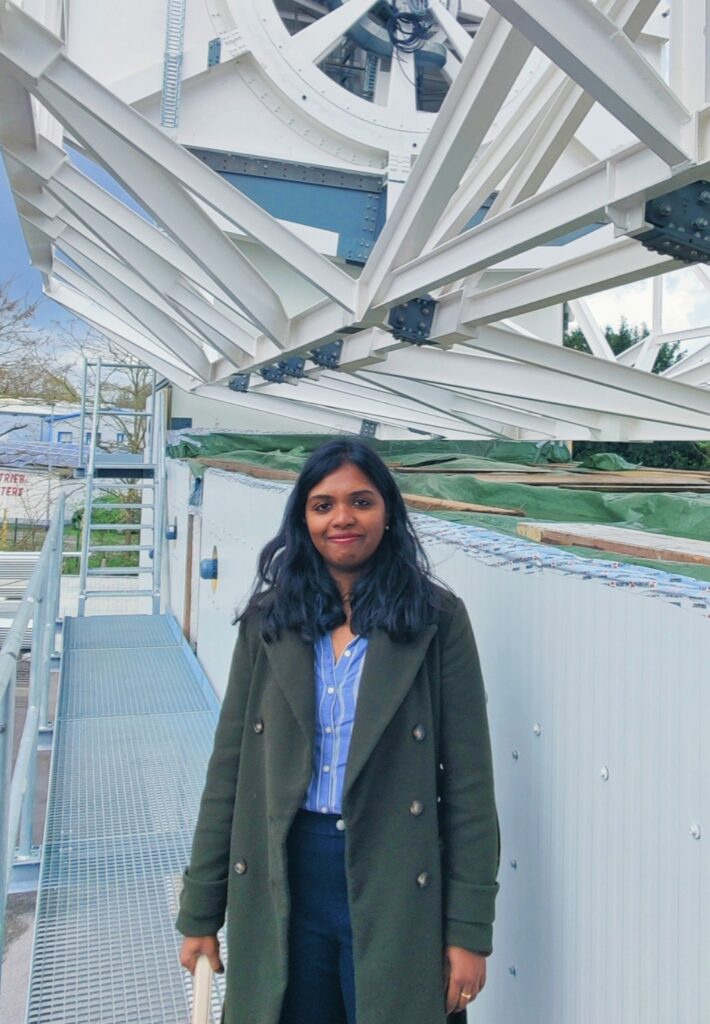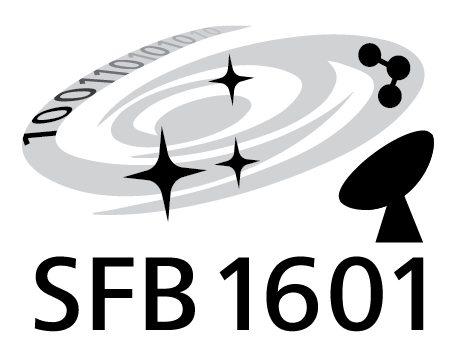SFB1601 people’s science
SFB1601 people’s career

● W3 Professor for Theoretical Astrophysics
● President of the German Astronomical Society
● Speaker of SFB 1601
Affiliations
● I. Physics Institute, Department of Physics, University of Cologne
● Cologne Center for Data and Simulation Science, University of Cologne
Credit for photo: @janabauch
🌍 Why did you choose to be a physicist?
– I always knew I wanted to understand how the nature works, so studying Physics was the obvious answer. During my gymnasium, I also chose to do a thesis in Physics to measure the piezo effect. I performed the experiment with my father who was leading a lab at a microchip company. I loved doing those measurements with him as it showed me the power of understanding physics via such measurements. Continuing to pursue a career in Physics was also impacted by the fact that a lot of my colleagues during my Ph.D. and postdoctoral research were my friends. I loved how in academia, I get to discuss science with friends and get to meet so many of them during various conferences.
🌍 What do you enjoy doing outside your research? – I love horse riding. I have done so since I was 8 years old and even now I am with my horse each week. For me, it is the perfect activity to help me relax. As I concentrate on riding and am in the outdoors, it allows me take my mind off all the stressful things that may be going on. I always feel relaxed afterwards and am happy to get back to life and work.
🌍 Did you experience a “Eureka” moment when you felt you had made it in science or as a researcher? – In the earlier parts of my scientific life, I had dabbled working with multiple aspects within astrophysics and felt unsure of what my future research could look like. There was also an ongoing worry of whether I would get a job. But during my postdoctoral research, we started the SILCC collaboration. This collaboration was so cool and innovative, and it got a lot of attention from varied fields. I remember thinking that my research was in the right direction and that people were indeed interested. It also led me to believe that my skills were valuable and even if I didn’t end up in academia, job possibilities were endless.
🌍 What have you struggled with during your scientific career? – I am always excited about new ideas and can sometimes over-share before the right moment. I have learnt how important it is to work on these ideas and do solid research before sharing them. In this era of open access, good research can reach a far larger audience and can make a really big impact. So, it is important to be patient with new ideas and sharing the work at the right time always pays off in the longer run.
🌍 What’s the favourite part of your week currently? – Mondays! I know it sounds crazy but I love how Mondays bring in infinite possibilities. There are so many exciting things ahead in the week. I have worked almost 6-7 days per week and I don’t feel work is something I have to force myself to do. I always feel super privileged to work on something I love with people I love working with as we try to understand the vast expanses of our universe.
🌍 What will you say to the young females in Physics and academia at the moment? What has been your experience? – When I was a young female in physics, I would sometimes feel demotivated if someone was too critical of my work. I would think they were assuming I was not capable of something. However, I have since realized that it is crucial to be critical in science. Science needs criticism! I have continued to work hard and that gives me the power to back my research but also importantly, gives me the courage if something is not appropriate. One must be vocal if any inappropriate comments are said not based on your research. Pointing these out could be crucial in breaking any stereotypical biases. I truly believe in the role of open and honest conversations with your colleagues to establish such boundaries. I know raising such concerns out loud can be tricky and that’s when self-confidence is crucial. Cologne has been wonderful in that regards as I work with such open-minded people and great scientists who are all working towards improving and excelling in science.
🌍 What excites you about scientific research over the next 5 years? – I am looking forward to see what machine learning (ML) can do for us. I’m a little skeptical about how much the impact could be but I am keeping an open mind. I’m really excited to work with experts in the Machine Learning field in the coming years. Of course, I am also looking forward to elaborating which stellar feedback processes are most important or how the interstellar medium, which is the reservoir for star formation, develops at lower metallicity, so in dwarf galaxies or in the early Universe. Coupling various effects like different heating processes, propagation of cosmic rays etc. is very novel and exciting. There are also many challenging projects from a hardware point of view and the opportunity to tackle these challenging parts is also exhilarating.

● Veena Vadamattom Shaji
● Postdoctoral researcher in Astrochemistry, Galactic structure, Interstellar medium, Star formation, Kinematics
Affiliation
● Max-Planck-Institut für Radioastronomie, Bonn
Guest researcher at University of Cologne
🌍 At what career stage are you currently and why did you choose physics?
– I obtained my PhD from IIST, India, in 2018, and I’m currently in the fifth year of my postdoc. My journey into astronomy was significantly influenced by my family’s passion for the cosmos. Even though my maternal grandfather passed away when my mother was very young, his love for the stars influenced her, and she passed it down to me. I remember staring at the sky as a child, feeling a strong connection to the universe. Alongside reading my grandfather’s diaries about astronomical events and space missions from the 60s and 70s, these moments looking at the stars guided me towards becoming an astronomer. I have never had any other career thoughts in my school days except being an astronomer.
🌍 To date, when did you feel that your research has made an impact? – One of the biggest moments was my discovery of a wave-like molecular cloud connecting two spiral arms of the Milkyway, to which I could give an Indian name ‘Gangotri wave’. This along with a couple more discoveries, received recognition not only in the scientific community, but also among the general public through media. Reflecting back on the challenges I faced during my early career due to societal barriers and a lack of awareness about pursuing physics compared to other more popular fields, I now find satisfaction in how my work has served as a response to those criticisms.
🌍 What have been the major hiccups or barriers that you have faced during your research career? – I feel many times, my own limiting belief has been my major barrier. In particular, I was a bit doubtful of my capabilities at the initial stages of my PhD. At that time, my PhD supervisor boosted my confidence and advised me that doing novel research can always be daunting and I should focus on learning. I learned that knowledge is the best answer to those doubts. The second challenge was the COVID lock-down, both academically and personally. I had just moved to Germany from India on receiving the Humboldt Fellowship when COVID lock-down was imposed. Having no scheduled astronomical observations, collaborations, and offline peer-discussions, it was a bit hard to settle down in a new country for work. But overall, I am quite happy with my research and healthy work environment now.
🌍 What are your hobbies outside the research work? – My research feels more like a hobby than a job to me. I really enjoy and love what I am doing in my office every day. I am also very passionate about cooking – it is like a meditation for me and calms me down when I am in stress. I like to cook even if I am not hungry. Additionally, I am also interested in painting and sometimes also paint astronomical sources. I am currently learning the ancient traditional mural paintings of Kerala.
🌍 In your view, what are the challenges women are facing in terms of diversity and inclusion in academia? What has been your experience? – The main challenge I observed in India was that women are expected to “settle down” in life by mid 20s. So, even though they want to pursue a career in research or academia, these societal barriers might lead them to discontinue. My parents fortunately supported me throughout, but I know many women who gave up their dreams just to have a stable family at a given time. This might have led to some percentage of gender inequality in academia. The research field is also quite competitive and it needs dedicated efforts and publications, which might not be possible for some women with children and family while managing multiple duties. Unfortunately, most times these choices are personal and I do not see a generalized solution. But I believe that the systematic changes in academia and family support network are necessary to manoeuvre through these challenges.
🌍 How excited are you about the upcoming telescopes and new technologies? Where do you see your research in the coming 10-15 years? – As an observational astronomer, I am quite excited about many aspects. High resolution and high sensitivity are very critical in the research that I do to study the centre of our Milky Way galaxy. Revolutionary telescopes like ALMA, JWST, EHT, etc. nowadays are taking the research to another level. People also study high redshift universe using such telescopes apart from the Galactic sources and altogether we are improving our understanding of the cosmos using such cutting edge observations. There are researchers also working in the solid state physics and other fields which are improving our telescopes and instruments. Being an interdisciplinary field is the beauty of astronomy. I love to follow these new technologies and their implications in astronomy. In the coming 20-25 years, we are definitely going to have many more breakthrough results. This is just a beginning!
🌍 What would you like to say to motivate the youngsters who aspire to get into the research and academia in physics? – I would advise them not to feel limited based on their grades and here I can give my own example. I used to be just a middle bencher, not the highest scorer in Mathematics and Physics during my school days. Sometimes we think that we need to be “exceptional” to follow a certain path, but this might not be true. Persistence is way more important, I would say. There might be situations and people to drag you down, but if you stick to your dreams and work hard to achieve them, nobody can stop you. The universe will give you what you want! I am the best example of this.
